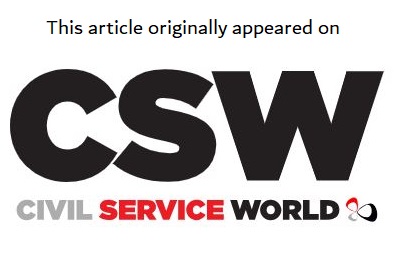An assessment by the National Audit Office has praised the speed with which programme was launched, but raised concerns about insufficient demands for information and user issues with data platform
The National Audit Office has warned that government cannot accurately say how many Ukrainians face homelessness in the UK because of data gaps caused by IT issues and a failure to mandate local authorities to provide certain information.
In a report released this week, the NAO says the government’s Homes for Ukraine Scheme “moved at speed” to temporarily support Ukrainians seeking refuge from the war with Russia, supporting 131,000 arrivals in the UK since March 2022 using £2.1bn in funding. It also praises the government for “giving early consideration to the risks of the scheme and putting in place structures to manage them from the outset”.
But the watchdog has raised concerns about the Department for Levelling Up Housing and Communities’ decision to only stipulate that local authorities provide certain data, saying this has “inhibited its understanding of how the scheme is operating”. DLUHC chose not to mandate some data collections to “reduce the administrative burden on local authorities”, the report says.
As a result, DLUHC “does not have accurate data regarding the numbers of Ukrainians who have become homeless following their sponsorship ending” and is also missing a reliable data picture in several other areas, according to the NAO.
Related content
- Homes for Ukraine registrants targeted by online fraudsters
- Government’s Ukraine response hampered by Foreign Office IT, reports claim
- Patel pledges to publish data on visas for Ukrainians
The main data platform for the scheme, provided by tech firm Palantir, enables certain key scheme data to be shared between DLUHC, the Home Office and local authorities, including on the movement of Ukrainians post-arrival. But the decision not to make it mandatory for local authorities to report all data, which the NAO says was partly due to the system “confusing” some councils, means “some local authorities continue to report inconsistently”, the report says.
In order to set the scheme up quickly, DLUHC accepted an offer from Palantir to provide the IT system for free for six months. But the NAO said the speed of the deployment meant that it had not carried out the usual testing before it went live, and some local authorities found it “confusing to use”. Following the initial six-month period, DLUHC directly awarded a 12-month contract in September 2022 worth £4.5 million. This was extended again in September 2023 for a further 12 months at a cost of £5.5m.
DLUHC and Palantir have since resolved many of the initial problems with the system, according to the report, but DLUHC has not mandated that local authorities use it, and “consequently DLUHC recognises it does not have complete data on some aspects of the scheme”.
The report, which does not look into the value for money of the scheme, also explains DLUHC’s reasoning for sticking with the system. It says the department prioritised delivery over finding an optimal value provider for the system and acknowledged it should plan to move away from Palantir due to the high cost, but decided against that earlier this year as “it may cost more due to the start-up costs of a new supplier, risks to implementing it on time and potential quality issues”.
Around 30% of English local authorities have regularly not provided homelessness data on the scheme to DLUHC. By the end of August 2023, local authorities had reported to DLUHC that 4,890 households in England on Homes for Ukraine visas had been homeless or come within 56 days of being homeless – equating to 8% of the 65,117 households in England using the visas. But the watchdog said this “likely understates the true picture, as approximately one third of local authorities are not providing homelessness data to DLUHC and the risk of homelessness is likely to increase as sponsorships end”.
Additionally, since the start of 2023, at any one time, roughly 600-800 Ukrainian households have been living in temporary accommodation in England but DLUHC does not know how many of these households are on the Homes for Ukraine scheme.
A government spokesperson said: “Following Russia’s illegal invasion of Ukraine, we acted quickly to launch Homes for Ukraine to bring families at risk to safety as fast as possible. We welcome the NAO’s recognition that the government has successfully supported 131,000 Ukrainians to come to the UK under the scheme, meeting our objective of helping to bring Ukrainians to safety.’ We are grateful to the extraordinary generosity of sponsors across the UK, as well as the hard work of local councils, volunteers and charities. We will provide an update on the future of the scheme well before the first visas expire.”





